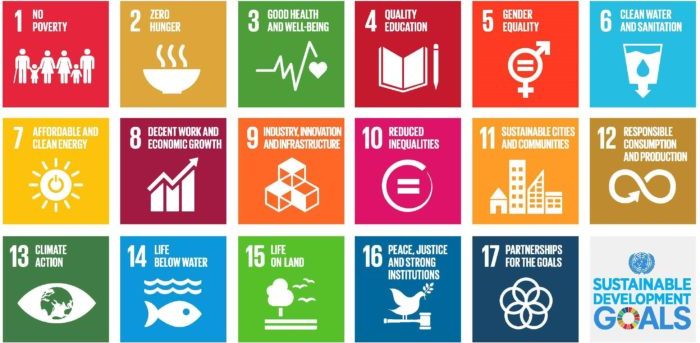The 30th session of IMO Assembly in London, on 27 November-6 December, adopted its strategic plan for 2018-2023, including a revised mission statement, a new vision statement and seven newly-identified strategic directions for IMO, placing the Organization firmly on route to supporting the implementation of the United Nations Sustainable Development Goals and the 2030 Agenda for Sustainable Development.
The strategic directions are:
- Improve implementation – ensuring regulations are effectively, efficiently and consistently implemented and enforced.
- Integrate new and advancing technologies in the regulatory framework – balancing the benefits derived from new and advancing technologies against safety and security concerns, the impact on the environment and on international trade facilitation, the potential costs to the industry, and their impact on personnel, both on board and ashore.
- Respond to climate change – developing appropriate, ambitious and realistic solutions to minimize shipping’s contribution to air pollution and its impact on climate change.
- Engage in ocean governance – engaging in the processes and mechanisms by which the use of the oceans and their resources are regulated and controlled.
- Enhance global facilitation and security of international trade – addressing things like arrival and departure formalities, documentation and certification, and generally reducing the administrative burdens that surround ship operation.
- Ensure regulatory effectiveness – improving the actual process of developing regulations, to make them more effective; gathering more data, and being better and smarter at using it to make decisions; getting better feedback from Member States and the industry and improving the way IMO learns from experience and feeds those lessons back into the regulatory process.
- Ensure organizational effectiveness – increasing the overall effectiveness of IMO, including the Member states, non-governmental organizations, donors, the Secretariat –all the many stakeholders in the Organization as a whole.
“IMO will uphold its leadership role as the global regulator of shipping, promote greater recognition of the sector’s importance and enable the advancement of shipping, whilst addressing the challenges of continued developments in technology and world trade; and the need to meet the 2030 Agenda for Sustainable Development.
To achieve this, IMO will focus on review, development and implementation of and compliance with IMO instruments in its pursuit to proactively identify, analyse and address emerging issues and support Member States in their implementation of the 2030 Agenda for Sustainable Development,” was IMO’s vision statement.
In particular, the Assembly adopted three resolutions which focus on IMO’s capacity-building work to support the implementation of the SDGs.
The first resolution covers the linkages between IMO’s technical assistance work and the 2030 Agenda for Sustainable Development and requests the Technical Cooperation Committee to give high priority to those activities.
The second outlines guiding principles of IMO’s integrated technical cooperation programme in support of the 2030 Agenda for Sustainable Development, urging Member States to ensure the integration of maritime issues within their UN Development Assistance Frameworks.
The third covers financing and partnership arrangements for an effective and sustainable integrated technical cooperation programme, inviting the whole industry to engage actively in the support of technical cooperation activities through voluntary cash donations to the TC Fund; financial allocations to IMO multi-donor trust funds; multi-bilateral arrangements; voluntary donations of interest earnings under the Contributions Incentive Scheme; and in-kind support through the provision of no-fee consultants, hosting of technical assistance events and the donation of equipment.
In addition, the Assembly recognized that the ongoing problem of marine plastic pollution required further consideration, in line with the UN SDG 14 which has a target to prevent and reduce marine pollution. The Assembly encouraged all parties to MARPOL Annex V and international organizations to submit concrete proposals to the next sessions of MEPC and the meeting of the Parties to the London Convention and Protocol which meet during 2018.
Further, the Assembly welcomed the planned work within the IMO MSC to build on the already-adopted Polar Code and move forwards with looking at how vessels not currently covered by its requirements might be regulated in future.
Other key issues were the IMO Ship Identification Number Scheme, that was extended to fishing vessels of steel and non-steel hull construction, as well as the adoption of revised Procedures for Port State Control.
Concluding, the Assembly adopted a resolution calling on States to consider ratifying a key treaty which will provide a global regime for liability and compensation in the event of an incident involving the international or domestic carriage by sea of Hazardous and Noxious Substances, such as chemicals, LPG and LNG.
Another resolution adopted aims to allow for the delegation of authority to issue certificates of insurance under the International Convention on Civil Liability for Oil Pollution Damage, 1992 (the 1992 Civil Liability Convention) and the 2010 HNS Convention.
Further details may be found here.






























































